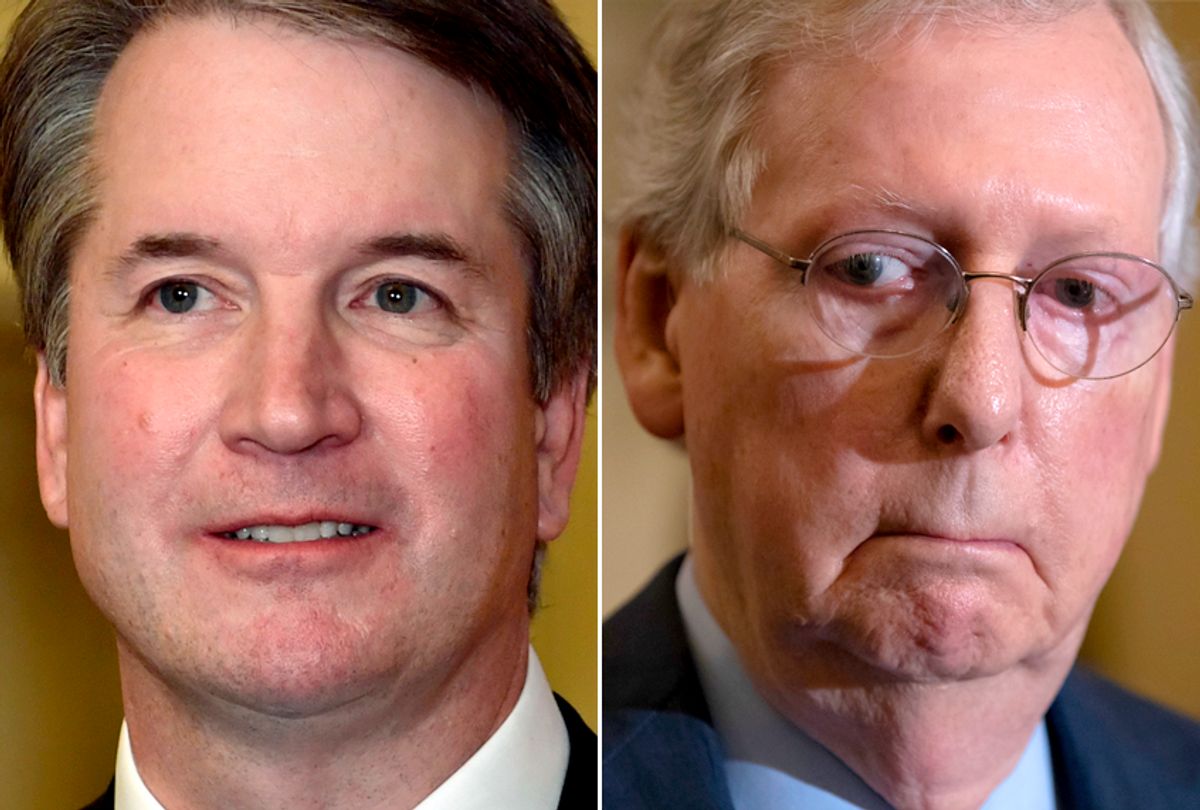In a new piece for the "New York Review of Books," historian Christopher Browning warns that there are troubling parallels between the present-day United States and the days of fascism's rise in Europe.
Browning, a specialist in the areas of the Holocaust, Nazi Germany, and world war-era Europe, isn't arguing that President Donald Trump is a modern Adolf Hitler or that Trumpism is akin to Nazism. But he does argue that certain stress fractures in the society and the international order appear to be re-emerging and that these patterns portend troubling trends for the United States and the rest of the world.
And there is one figure in American politics that Browning does see as a relatively direct — and troubling — analog to a crucial world war-era figure. Senate Majority Leader Mitch McConnell, the Kentucky Republican, is becoming "the gravedigger of American democracy," Browning wrote, a role played for Germany beginning in the 1930s by President Paul von Hindenburg.
Hindenburg didn't defend democracy in Germany. Instead, he unleashed emergency powers in 1930 to appoint chancellors to skirt over political divisions in parliament. Eventually, Hitler became chancellor, when Hindenburg erroneously thought he could be controlled.
Now, McConnell shows a similar disregard for democracy and likewise opens up the country to serious risk, Browning explained:
He stoked the hyperpolarization of American politics to make the Obama presidency as dysfunctional and paralyzed as he possibly could. As with parliamentary gridlock in Weimar, congressional gridlock in the US has diminished respect for democratic norms, allowing McConnell to trample them even more. Nowhere is this vicious circle clearer than in the obliteration of traditional precedents concerning judicial appointments. Systematic obstruction of nominations in Obama’s first term provoked Democrats to scrap the filibuster for all but Supreme Court nominations. Then McConnell’s unprecedented blocking of the Merrick Garland nomination required him in turn to scrap the filibuster for Supreme Court nominations in order to complete the “steal” of Antonin Scalia’s seat and confirm Neil Gorsuch. The extreme politicization of the judicial nomination process is once again on display in the current Kavanaugh hearings.
As a result of McConnell's strong-arm tactics, Browning argued, it will now be impossible for a president to make significant judicial appointments — including to the Supreme Court — unless the Senate is led by the same party. This dynamic will push the country toward greater dysfunction.
He continued:
Whatever secret reservations McConnell and other traditional Republican leaders have about Trump’s character, governing style, and possible criminality, they openly rejoice in the payoff they have received from their alliance with him and his base: huge tax cuts for the wealthy, financial and environmental deregulation, the nominations of two conservative Supreme Court justices (so far) and a host of other conservative judicial appointments, and a significant reduction in government-sponsored health care (though not yet the total abolition of Obamacare they hope for). Like Hitler’s conservative allies, McConnell and the Republicans have prided themselves on the early returns on their investment in Trump. The combination of Trump’s abasement before Putin in Helsinki, the shameful separation of families at the border in complete disregard of US asylum law (to say nothing of basic humanitarian principles and the GOP’s relentless claim to be the defender of “family values”), and most recently Michael Cohen’s implication of Trump in criminal violations of campaign finance laws has not shaken the fealty of the Republican old guard, so there is little indication that even an explosive and incriminating report from Special Counsel Robert Mueller will rupture the alliance.
Most ominously, Browning warns that the detrimental effects of figures like McConnell and Trump will last for a long time. However long they stay in power, they will eventually leave — but the damage done to democracy and American institutions may persist for generations.




Shares